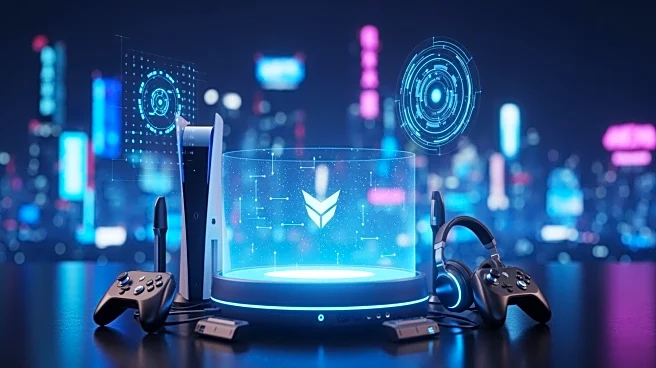What's Happening?
Halo Studios is reportedly developing a new live-service multiplayer game, drawing comparisons to Fortnite due to its long-term updating model. The game is expected to be released in 2026, coinciding with
the franchise's 25th anniversary. The development process involves the use of generative AI for tasks such as enemy AI and terrain generation, although human input remains crucial. The report has sparked discussions about the role of AI in game development, with clarifications from industry insiders stating that AI is not being used for art assets or game development mandates. The upcoming Halo World Championships may reveal more details about this project.
Why It's Important?
The integration of AI in game development represents a significant shift in the industry, potentially accelerating production timelines and enhancing game complexity. This development could influence how future games are created, impacting developers and players alike. The live-service model, akin to Fortnite, suggests a focus on continuous engagement and revenue generation, which could reshape business strategies within the gaming sector. As AI becomes more prevalent, ethical considerations regarding its use in creative processes may arise, affecting industry standards and practices.
What's Next?
Halo Studios is expected to announce more details about the new game during the Halo World Championships. The event may provide insights into the game's features and the extent of AI integration. Stakeholders, including developers and players, will likely monitor these announcements closely to understand the implications for the franchise and the broader gaming industry. The potential release of a remastered version of Halo: Combat Evolved could also attract attention, especially with its rumored availability on PlayStation consoles.
Beyond the Headlines
The use of AI in game development raises questions about the future of creative roles within the industry. As AI handles more technical tasks, developers may need to adapt to new workflows and skill requirements. This shift could lead to changes in employment patterns and training programs, influencing the industry's labor market. Additionally, the ethical use of AI in creative processes may become a topic of debate, prompting discussions about the balance between technology and human creativity.










